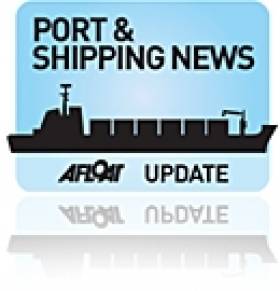Displaying items by tag: European Short Sea Shipping
IMDO Shipping Review: Maersk Re-Route Via Suez, Dry-Bulk Momentum, Ireland Ranked 3rd in Globalised Economy and more…
#Ports&Shipping -The latest IMDO Weekly Shipping Market Review reports that the world's largest container shipping line, Maersk Line, is looking to change its path for the trade lane of Asia to US East Coast, by opting for the Suez Canal as opposed to the current Panama Canal.
The re-routing is to take advantage of economies of scale, as Maersk will be able to send a vessel through the Suez Canal that can carry up to 9,000 TEU containers, which would be more cost-effective than sending two 4,500 TEU vessels through the Panama Canal.
Dry Bulk Market: On the back of increased cargo availability, the dry bulk market has maintained its rising momentum. The steady increase is illustrated in the weekly rise in the industry's benchmark, Baltic Dry Index (BDI), finishing at 872, up from 818 the previous week.
Short Sea Shipping: In the European Short Sea Market, as with most weeks lately, can be summarised as "steady/flat", according to HC Shipping & Chartering". However, this week highlighted the abundance of spot tonnage slightly more than most weeks, along with owner's eagerness to cover positions becoming more evident.
Irish Economy: Globalization Ireland has been ranked the world's third most globalised economy in terms of GDP, and the most globalised nation in the western world, according to a new index published by Ernst and Young. The index is measured by a country's openness to trade, movement of capital, exchange of technology and ideas, labour movements, and cu ltural integration. Ireland finished third behind Hong Kong and Singapore, but ahead of Switzerland, Sweden, Denmark, Belgium and the UK.
To read more and other stories, they can be viewed or downloaded as a PDF from the IMDO Shipping Markets Review for Week 11.




























































